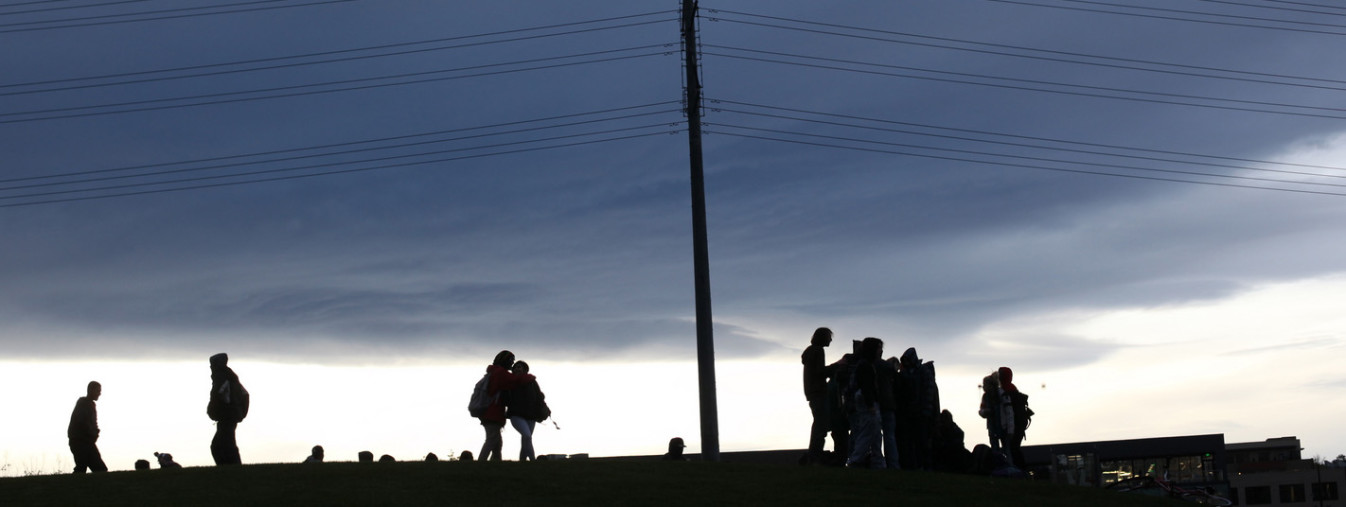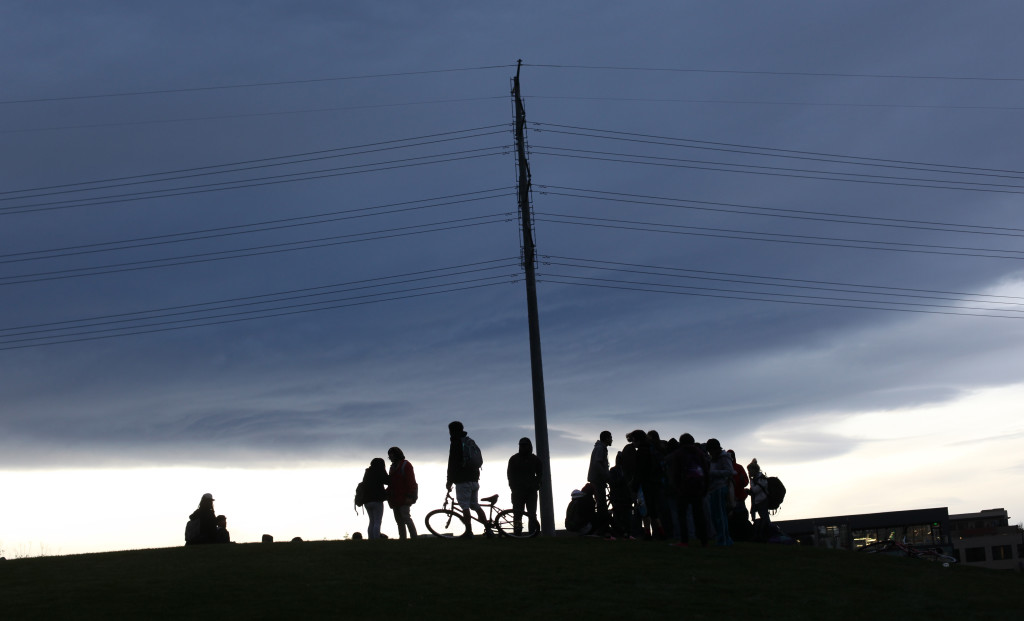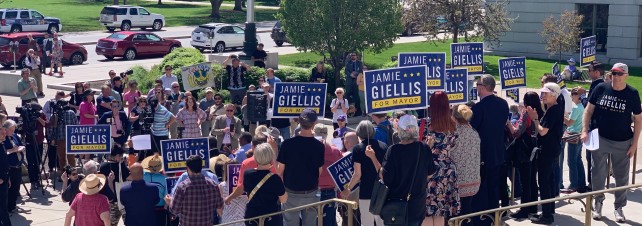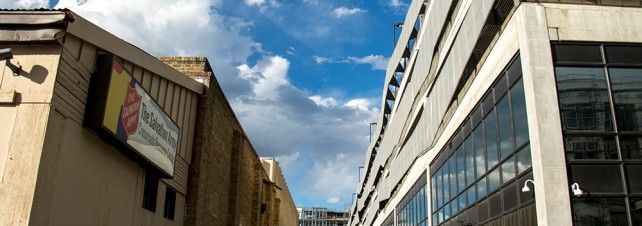This is my first cover story for Westword, Denver’s alt-weekly, published in December 2015, a few months after my arrival here.
The regulars on Stoner Hill tell legends about the place. They say the gentle mound’s grassy curve conceals garbage or haunted graves — maybe both. It’s the kind of spot discussed with some reverence in boxcars and squats across the country’s traveling circuits. Even Google Maps can pinpoint Stoner Hill — not an official name — at the crown of Commons Park, near the confluence of Cherry Creek and the South Platte River, in the new urban district that has risen from the old Union Station railroad yards over the past twenty years.
And the place does deserve some notoriety. It stands at the birthplace of Colorado and symbolizes this state’s modern quandaries: Today, Stoner Hill is a perpetual party, a misdemeanor micro-economy and a meeting ground for Denver’s youngest homeless and assorted travelers. The grassy hilltop is where a housing crisis meets legal cannabis, and it just happens to have a panoramic view of booming downtown Denver. This might seem to put the park in a precarious position, but the legends say the place can never be disturbed — because of the landfill, or the spirits.
Still, its neighbors have tried to make it disappear. For the past year, a super-sized homeowners’ association has campaigned to disperse the hilltop crowd. If the group’s vision for an “activated” park comes to fruition, Don Cohen, president of the Riverfront Park Association, says he expects that “our travelers would find somewhere else to be that is a little more off the grid, a little less visible.”
The city responded to residents’ complaints by fencing off a significant portion of the public Commons Park last spring. Six months later, at the start of the cold weather, the fence came down. At one point, Denver even planned to spend $200,000 to shave down part of the hill.
That idea has since been scrapped, but a longer-term redesign project is under way, guided by input from a resident-heavy committee. And Denver is now installing surveillance cameras, funded by Cohen’s RPA, that will allow police and prosecutors to see nearly everything that happens on the hill.
Changes are coming to Commons Park. Yet Stoner Hill, its young denizens insist, will never go away.



